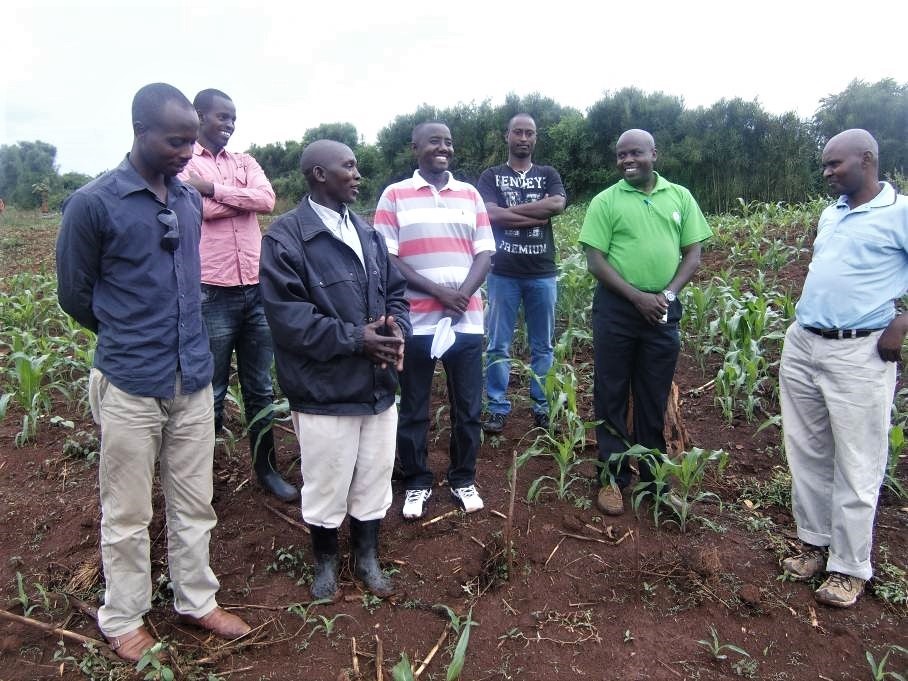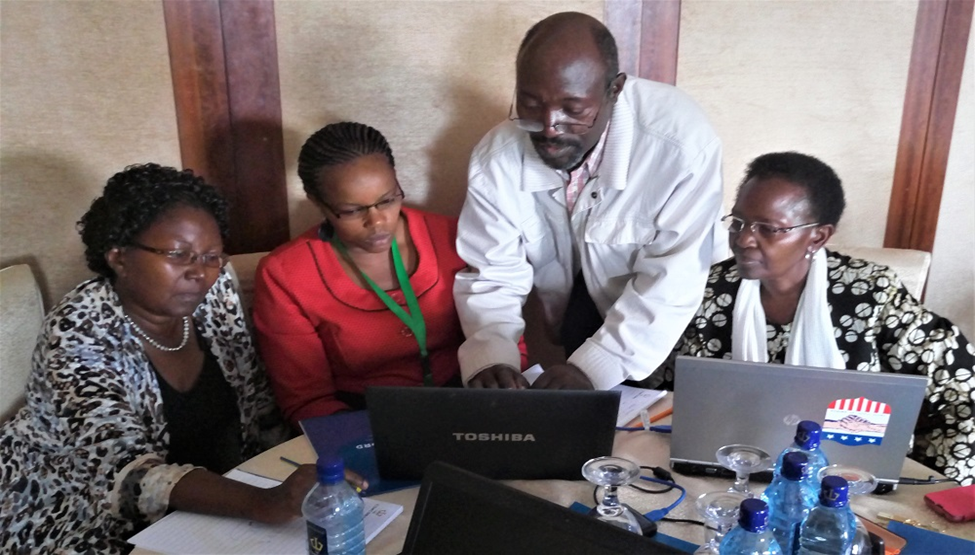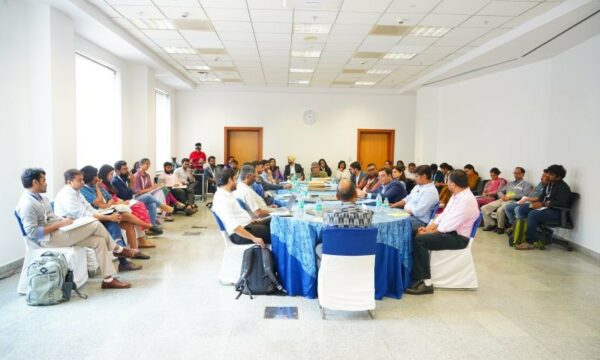
by Harrison Rware, James Watiti and George Oduor
Data sharing is an important step towards improving decision making for governments, institutions and other global organizations. Creating a platform to effectively share key data and analysis tools are some of the critical steps towards achieving open data sharing by all.
However, sharing data remains a challenge globally because of several reasons ranging from intellectual property and commercial interests where most scientists would like to access data from others but are rarely willing to disseminate theirs, except where intellectual property is recognized and rewarded.
Moreover, data sharing has not been possible among scientists because of inappropriate data presentation formats. In the recent past, it has been observed that institutional/organizational Memorandum of Understanding (MOUs) on data sharing often fail to work because they ignore or downplay the role and urgency of individual researchers in making research partnerships work.
Failure to address these gaps has left data sharing an open challenge in Africa, with calls to governments to create policies that would allow easier and faster sharing of data to support attainment of the UN’s Sustainable Development Goals and offer solutions to human challenges.
Between 2013 and 2017, CABI delivered a collaborative project, Optimizing Fertilizer Recommendations for Africa (OFRA). The project had a goal of improving the capacity of National Agricultural Research Institutions in developing fertilizer recommendations for efficient and profitable fertilizer use in 13 sub-Saharan African countries, within the framework of Integrated Soil Fertility Management (ISFM) practices under smallholder farming.
The project had an overall science advisor from the University of Nebraska-Lincoln (USA), two science coordinators from East Africa and West Africa, respectively, with defined roles to support and coordinate country teams. Each country had a team of researchers led by a Principal Investigator (PI) mostly from National Agricultural Research Institutions (NARIs). Other partners (institutions and projects/programmes) with funding from the Bill & Melinda Gates Foundation supported different facets of the project.
The OFRA project leveraged partnerships with other projects including the Africa Soil Health Consortium (ASHC) that supported knowledge management and communication, Africa Soil Information Services (AfSIS) that supported mapping and extrapolation of fertilizer recommendations and the Grameen Foundation Community which supported the development of a mobile app of the fertilizer recommendations. The project was implemented in Burkina Faso, Ethiopia, Ghana, Kenya, Malawi, Mali, Niger, Nigeria, Mozambique, Rwanda, Tanzania, Uganda and Zambia.
How did the project overcome data sharing challenges?
Multidisciplinary team approaches: Scientists from diverse institutions and disciplines in Africa (national and international research organizations, farmer groups, international and local NGOs) worked together in the development of the fertilizer recommendations that are crop and Agro-Ecological Zone (AEZs) specific, covering more than 14 important crops in Africa and over 54% important crop production areas of Africa.
Teams from the collaborating institutions complemented each other’s skills e.g. soil scientists, crop scientists, breeders, agronomists, statisticians and biometricians, impact assessment, Monitoring & Evaluation, policy specialists, private sector players and farmer organization proponents.
Joint development of tools and protocols: To have uniform project delivery, the teams developed and used the following methods: a common protocol in establishing research field and on-farm trials and same Key Performance Indicators (KPIs) that were nationalized/domesticated for monitoring and evaluation.
Teams from these countries used the same protocol to collect field trial data, and as such, same data variables were collected and installed in a similar data storage template for comparison and to ease merging.

Addressed interoperability of the data challenges. The project developed a common database which had similar data presentation format. This made it understandable by all the country teams, and, as such, data entry was done at the country level and shared with a Data Manager (at CABI) who then uploaded to the online database.
To ensure that partners agreed to share data, a formal data sharing agreement was written which was then supposed to be signed by the institutions leading the OFRA project in each of the 13 countries.
The formalization part made it very difficult for the institutions to append their signatures to the agreement. The PI’s passed the agreement to the legal advisor of their respective institution. As a result, only 7 out of 13 OFRA countries signed the agreement. One PI said: “Once the letter gets to the director and institutional legal advisor, the control is beyond us as PIs and ours is to wait for the decisions to be made.”
Capacity building and networking: The project identified and trained linear programmers from East and West Africa regions. The trainees supported the country teams to further develop fertilizer recommendations for other crops that were not included in the current research.
The Science Advisor identified data analysis experts to offer refresher classes for the country teams on data cleaning, data analysis and modelling to support their paper publications.
Additionally, the Science Advisor sponsored several young male and female scientists who acquired more skills in data analysis at the University of Nebraska-Lincoln. This further facilitated faster data sharing amongst the collaborating institutions, besides generating scientific papers from the research.
Shared outputs: Through the shared outputs, such as the fertilizer decision support tool (Fertilizer Optimization Tool or FOT), that was crop and AEZs specific, the partners were able to easily share data in places where AEZs are cutting across countries as was observed in Niger, Nigeria and Mali.
The Science Coordinator in West Africa said: “Some of the FOTs we developed cut across countries and therefore we had to sit down as country teams and develop them together.” The teams had joint regional and country papers as outputs and in the process, data was shared freely.
This was achieved by bringing the teams together to prepare their papers in one venue usually called a ‘”write-shop’ approach” in the two regions. During these ‘write shops’, guests and the trained linear programmers took time to support teams in cleaning and analyzing the data and finally drafting scientific papers.
As the world is moving to open data sharing, the OFRA project demonstrated that formalizing data sharing may delay the achievement of the broad agenda of collaboration and the SDG 17: Partnerships for the Goals.
However, empowering, recognizing and involving senior scientists, project leaders and principal investigators in African countries and beyond laced with joint and shared objectives and results, will hasten the data sharing process.
Additional information
Main image: A model farmer explains about a maize trial in Eastern Rwanda.
Donors
Alliance for a Green Revolution in Africa
Partners
Africa Soil Information Services (AfSIS)
National Agricultural Research and Extension Systems of the 13 countries
University of Nebraska, Lincoln
Related News & Blogs
Unpacking FAIR’s jargon: The Indian example
Ameen Jauhar, Data Governance Lead in CABI’s Digital Development team, examines the importance of the FAIR (Findable, Accessible, Interoperable, and Reusable) data principles. Drawing from his experience in data governance and policy, including his wor…
16 October 2024




